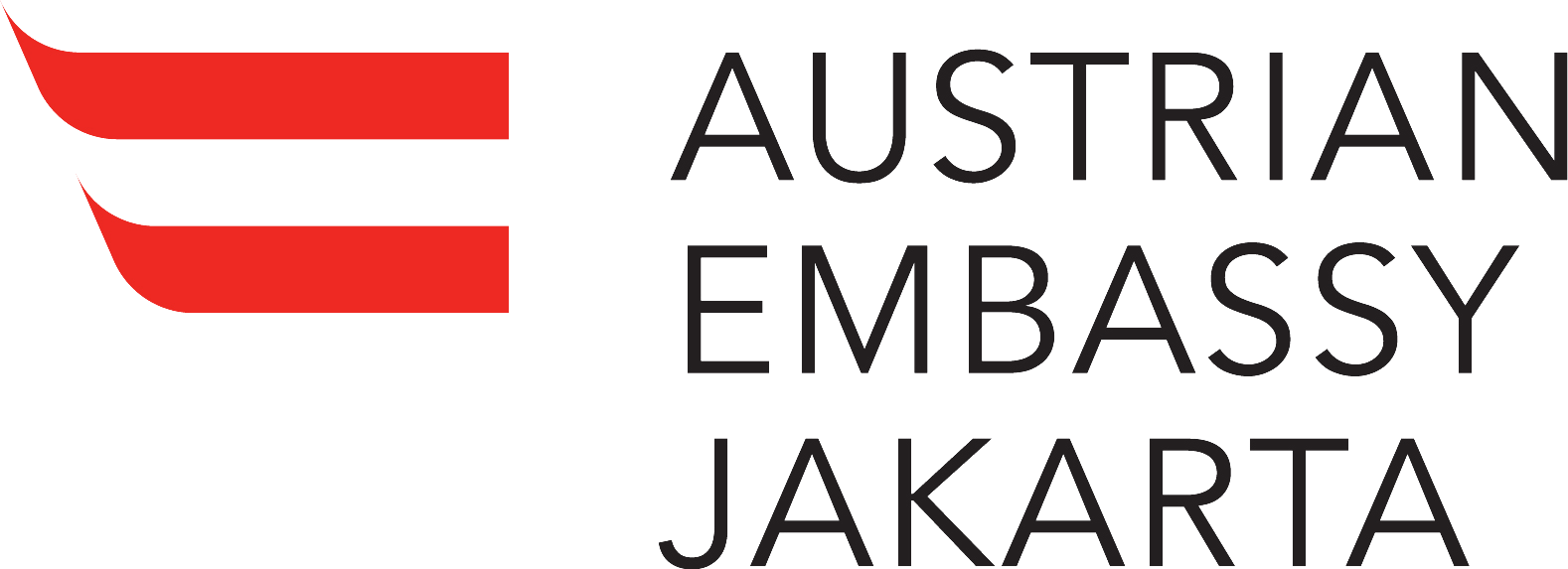THE NENEK
PROJECT

Through THE NENEK PROJECT, we intend to learn the practices and cultural techniques of nenek-nenek. We spend time to collect and understand the rich narratives from field trips, interviews and nongkrong with two nenek and six mothers of lifepatch members. Lifepatch is a citizen initiative in art, science and technology that practices a Do-It-Yourself culture, a culture that seems to have deep roots in Indonesian history
The Nenek Project started December 2014 and will end March 2018. It focuses on female citizens of Yogyakarta who were born between 1934 and 1954 and evaluate their demands and contributions towards technology.
Project Wiki︎︎︎
The output of the project will be the development of interactive art installations, fostering visibility of elderly persons, inter-generational knowledge circulation and gender equality within maker culture.
lifepatch – citizen initiative in art, science and technology (citizen initiatives in the arts, science and technology) is a community-based organization that works in creative and effective applications in the fields of art, science and technology. In its activities, lifepatch’s approach focuses on the art and science education through practice in the use of technology that is useful for the community.
In collaboration with lifepatch and the anthropologist Cindy Lin, Stefanie will try to engage with the local environment by giving workshops and taking interviews with ladies of the targeted age group. In a collaborative effort the team will generate a platform for debating questions of assistive, sustainable and citizen-initiated, decentralized technology. It is very important to us that through this project artists, scientists and technologists will join forces to face a social topic from different perspectives.
SHORT TEXT:
Women organizations in Java have many functions. Not only do they encourage home-based enterprises (food selling, laundry, beauty salon, teaching), but they as well promote and celebrate Javanese culture and take over administrative positions for the community in the neighborhood. Women’s work consists to a big part of social labour (baby weighings, helping after somebody died, preparing food for a large group in the neighborhood) that has been channeled by the government for effective mass organization. It has therefore, when channeled by the government rarely lead to autonomous social change. Yet, it did indeed lead to government approved social change, as e.g. PKK’s campaign for the national birth control program.
The role of women organizations is therefore ambivalent. What interests us about it is the body of knowledge (transferred over generations) on how to govern on a grassroots level, small groups of people, how to take care of each other and become productive, how to maintain a society on a micro level, how to survive by making something out of almost nothing.
This body of knowledge, as we suggest, has strongly informed hacker culture in Yogyakarta. Many functions, rituals, strategies and ethics have influenced the way LifePatch deals with questions of „appropriate conduct“. The notion of making things low tech, yet efficient for the community and rich in learning opportunities, can be observed in many projects LifePatch was involved in. We believe that this structure and network to maintain the structure are pre-conditions for hacking. And therefore pre-condition to every kind of invention. The invention of Nenek-Nenek organizing themselves can be read as „mother of all inventions“.
Oct 16, 2014




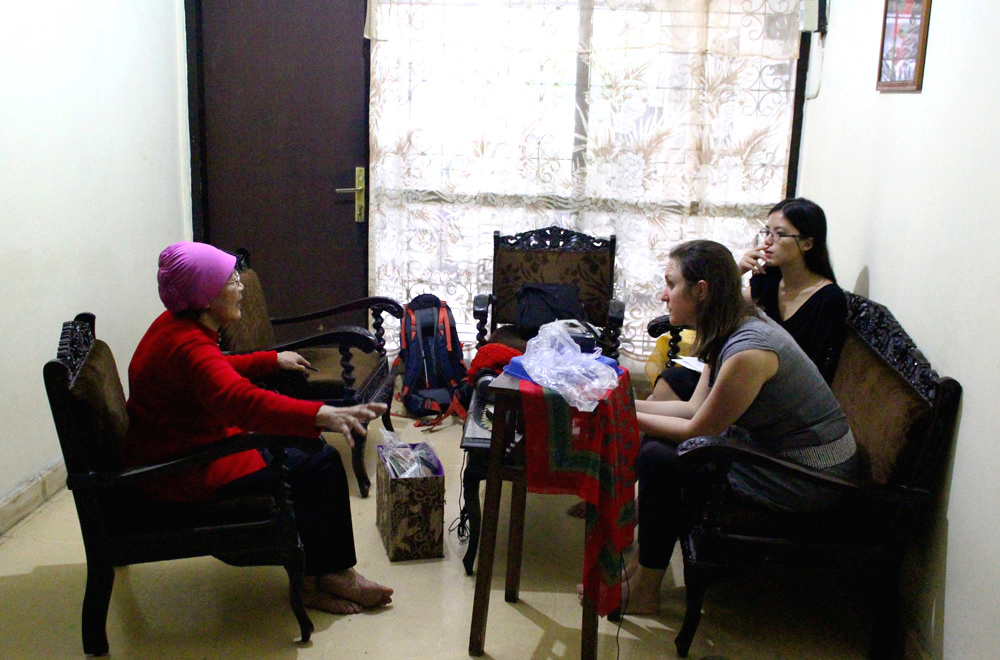

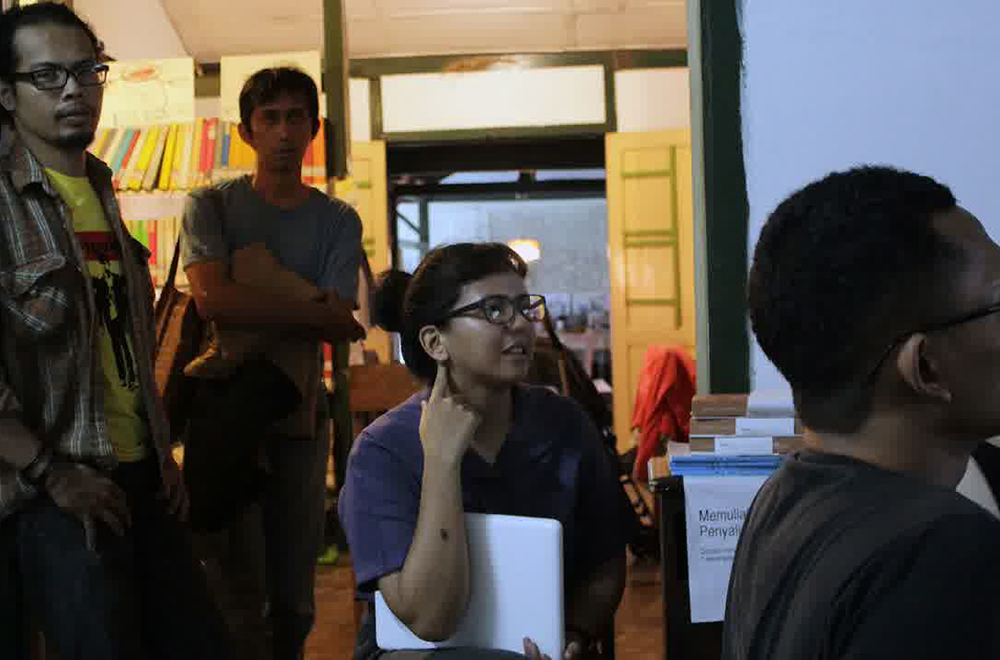
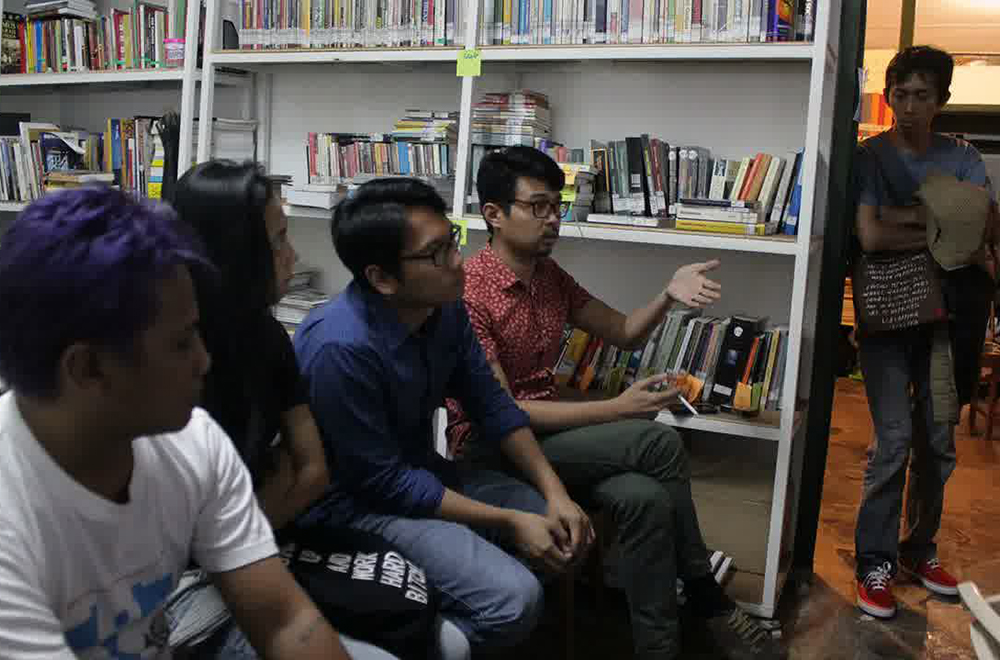
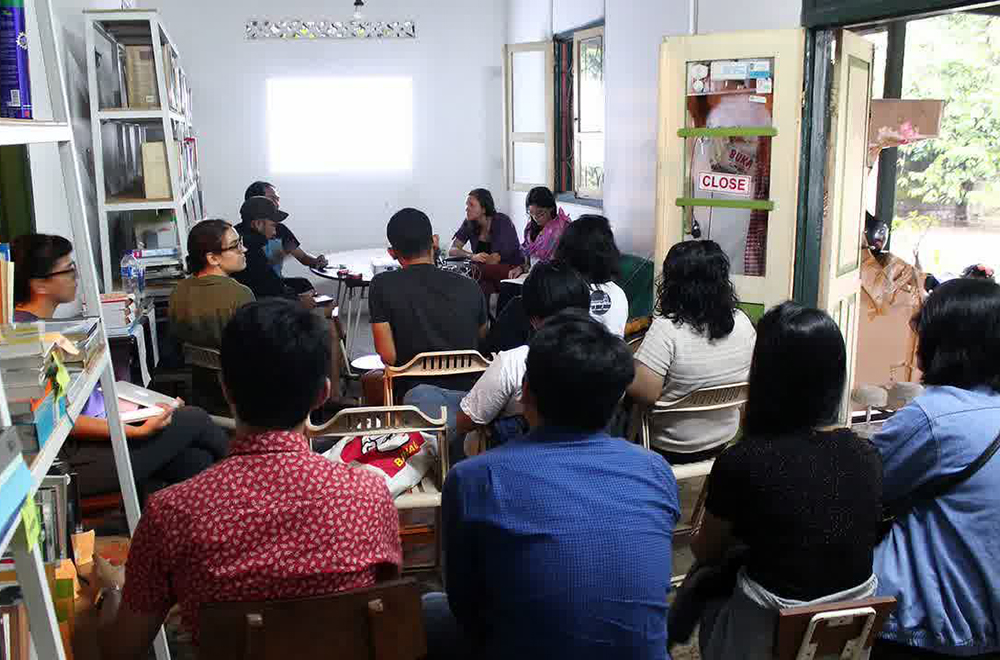
ARISAN MEETING IN YOGYAKARTA, 4.12.2015
Photos taken by Stefanie Wuschitz and Timbil Budiarto
support:



